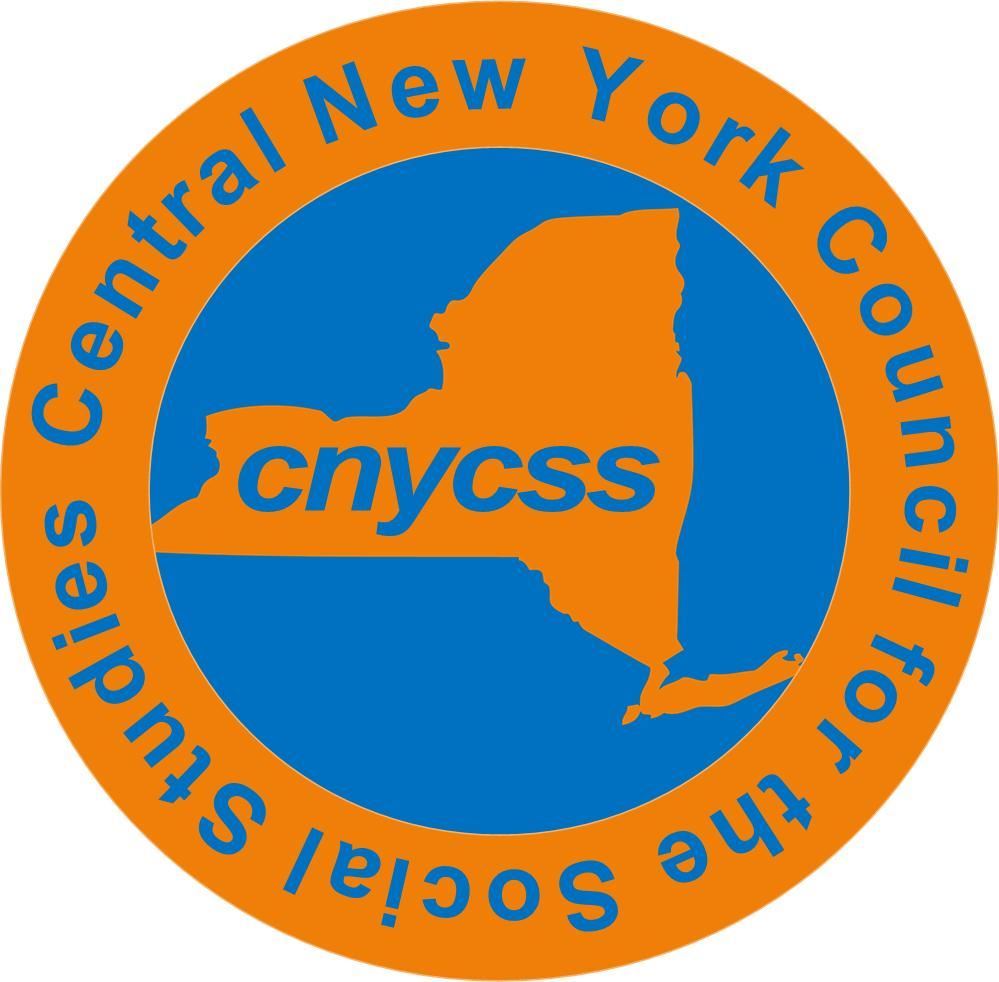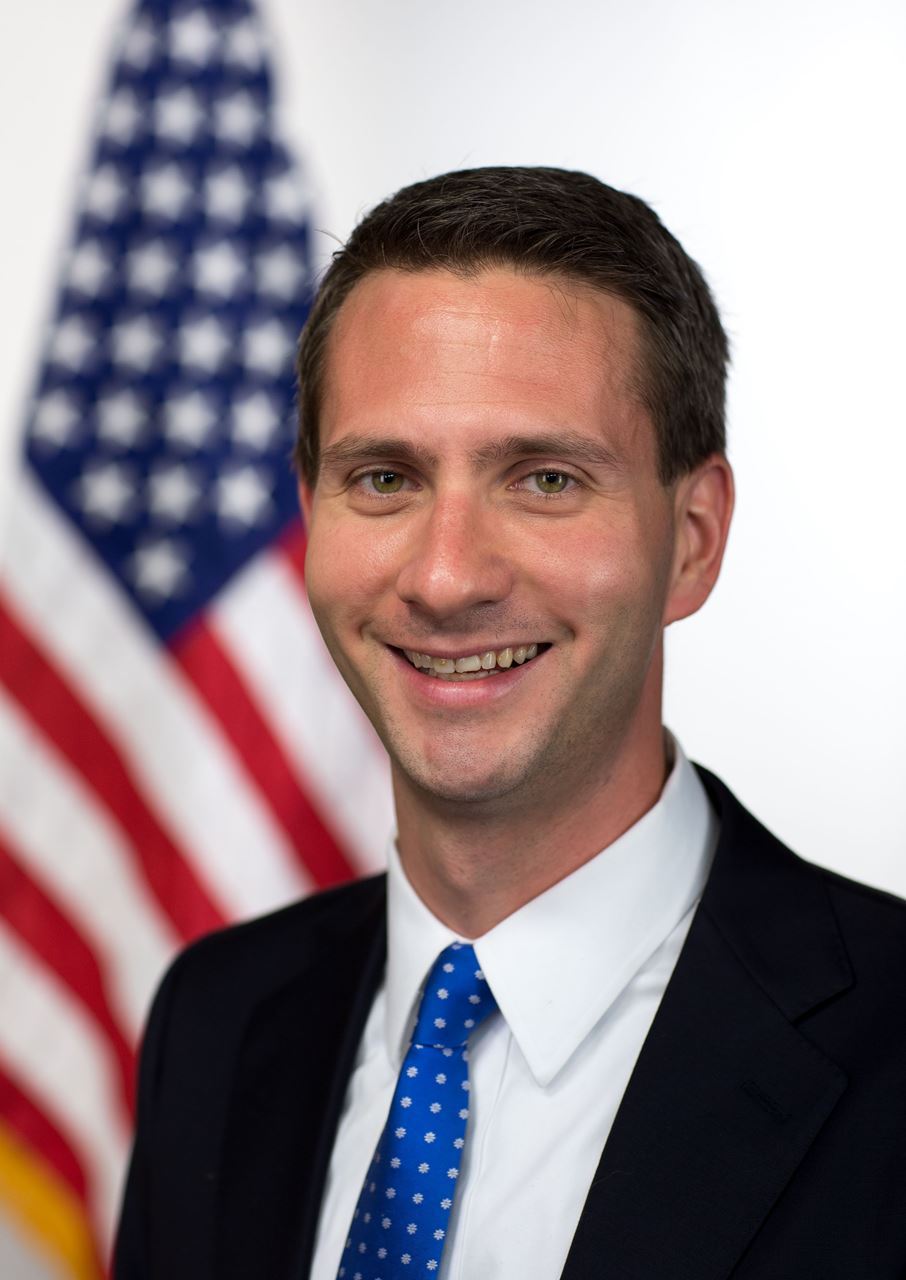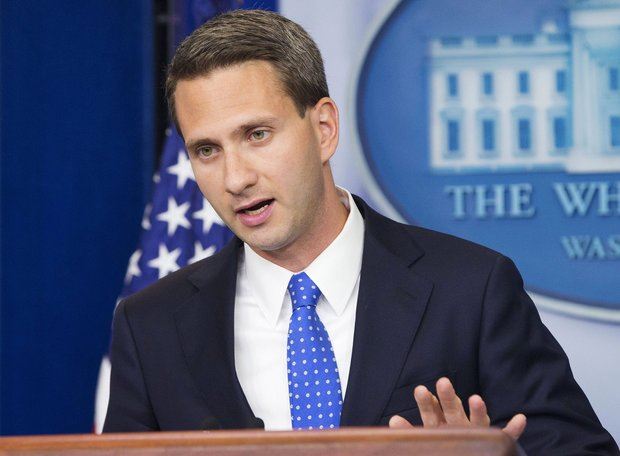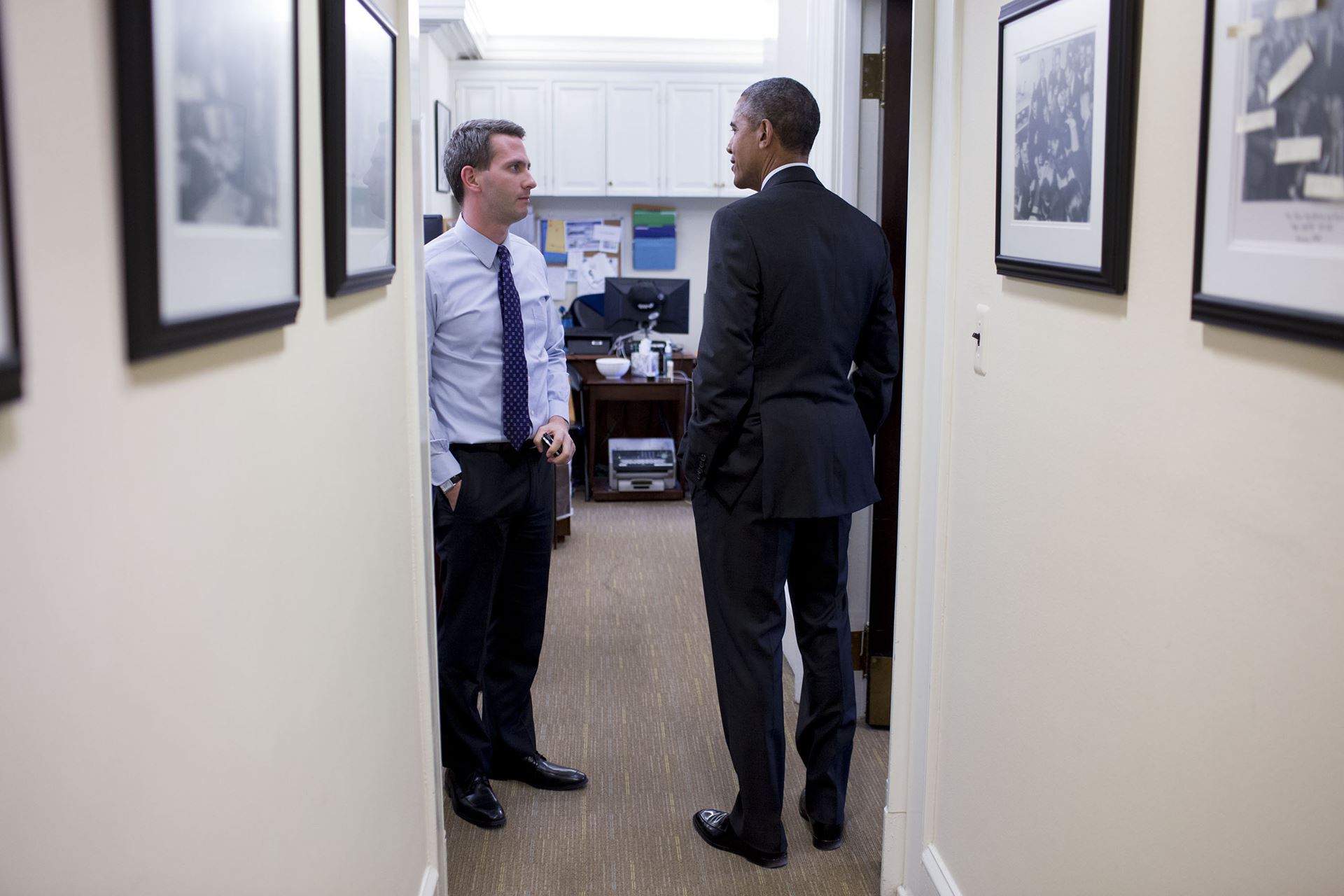Central New York Council for the Social Studies 2019 Annual Conference
TODAY'S SOCIAL STUDIES, TOMORROW'S CITIZENS Strategies for Instruction That Matters Tuesday, October 22, 2019 7:30am - 2:20pm Carnegie Conference Center, 2nd Floor Driver's Village |
Eric H. Schultz
Former White House Deputy Press Secretary and Special Advisor to President Obama
"Life Inside and After the White House: War Stories from Political Life" It is a distinct pleasure and honor for CNYCSS to welcome Eric Schultz as this year’s featured keynote speaker. A native of Syracuse and a graduate of Jamesville-DeWitt High School, Mr. Schultz is a political operative with extensive experience in political communication - in Washington D.C. and beyond. Mr. Schultz has worked for many prominent democratic offices and campaigns, including Hillary Clinton’s NY Senatorial campaign and with Senator Schumer, developing his highly-effective legislative communications strategies. Politico notes that Schultz is “well-known among Washington reporters for his aggressive, behind-the-scenes approach.” Most impressively, Mr. Schultz served as a trusted adviser to the Obama White House, speaking on behalf of the administration on Air Force One and in the White House Briefing Room, and managing the proactive messaging strategies and news-of-the-day responses. Mr. Schultz was recognized as the chief strategist the White House turned to in order to navigate crisis situations. Mr. Schultz began working with President Obama in 2011 and continues to work for the former president to this day as the founder of The Schultz Group. Mr. Schultz is a frequent speaker at professional meetings and academic forums and was recently honored as Washington University’s Distinguished Alumni, where he graduated with a degree in Political Science. We look forward to a morning of hearing Mr. Schultz’s reflection on political life and what light his “insider perspective” can shed on our understanding of the current political age. Mr. Schultz is eager to connect his experiences to the lessons he learned as a student of social studies, and to suggest some of the ways social studies educators can best prepare future citizens for the road that lies ahead. We expect this to be a lively and interactive conversation - you won’t want to miss it! |
|
SCHEDULE: 7:30am to 8:30am 8:35am to 9:40am 9:40am to 10:00am 10:00am to 10:50am 11:00am to 11:50am 12:00pm to 1:25pm 1:30pm to 2:20pm | Registration and Continental Breakfast Keynote Address Please Visit Museum Row Session A Presentations Session B Presentations Lunch; Brief Business Meeting and SED Update Session C Presentations |
PRESENTATION DESCRIPTIONS: |
Session A
A1: "What Should We Teach About the Treaty of Versailles?"
Professor John Langdon, LeMoyne College
It’s been 100 years since the signing of the Treaty of Versailles. It forms an important part of the 20th century portions of both 10th and 11th grade courses. The conventional wisdom that the Treaty was a major contributor to the outbreak of the Second World War needs to be revisited. Let's look at the situation in which the Treaty was written and then examine its achievements and its shortcomings.
A2: "Geography: Don’t Teach History Without It"
Timothy McDonnell, NY Geographic Alliance
Geography is an important piece of the Social Studies Framework, but it often doesn't get the emphasis required for student success. During this presentation, we will try out lessons on New York, U.S. and World History from a geographic perspective. We will try to answer questions like, "What does the growing season have to do with the Civil War?" and "How is the availability of natural resources related to the Industrial Revolution in Europe?" Teachers from all grade levels are welcome to attend.
A3: "Refugees, Immigrants, Executive Orders, Oh My!"
Beth A. Broadway and Olive Sephuma, The Center for New Americans
After a very brief history of the US Refugee Resettlement program, we will look at the current situation for refugees and immigrants in light of new federal policies and orders, then consider the impact on our communities, schools, and human suffering.
A4: "Root Systems, Hurricanes and Land Cultivation: Using Ecological Metaphors for Helping Students Navigate Mis- and
Dis-Information Online"
Whitney Phillips, The SI Newhouse School of Communications at Syracuse University
As we witness with our students, the “open terrain” of the digital age is grounds for both peril and promise for young thinkers. Drawing from the ecological metaphors featured in her forthcoming book You Are Here: A Field Guide for Navigating Network Pollution, Dr. Phillips will discuss strategies for addressing mis- and disinformation with students. She will also provide a set of practical tips instructors can use to encourage ethical self-reflection online.
Session B
B1: "What Should We Teach About Islam and the Islamic World?"
Professor John Langdon, LeMoyne College
For 6th, 9th and 10th grade teachers, Islam is a topic that is both enormously important and enormously controversial. This presentation suggests three areas of Islam that all world history courses should cover: The Islamic view of war and conquest, Islamic ethics and human rights, and Islam's attitudes toward other religions.
B2: "Turning Slacktivism into Activism in the Age of Social Media"
Dr. Nicole Waid, SUNY Oneonta
Young people have grown into one of the largest voting blocks in the US electorate. Students can passively share posts on social media about issues they personally care about, or they can expand the conversation through informal writing tasks. In this presentation, we will examine the importance of young people getting involved in causes they care about in the age of social media. The presentation will explore the importance of cultivating persuasive arguments that can be shared in order to increase civic engagement. There will be pre-writing strategies presented to illustrate how students can use graphic organizers and Padlet to express their thoughts in an informal matter.
B3: "Teaching Politics in the Age of Trump"
Chris Faricy, Associate Professor, Syracuse University
Back by popular demand! For educators, it can feel at times that our political environment has never been more contentious or volatile, making our work more challenging than ever. Together, we will explore how the Trump Presidency has changed and not changed teaching the basic tenets of American government.
B4: "Upper Elementary Social Studies"
Eleanor Leach, Syracuse City School District
We at CNYCSS are thrilled to bring teachers together to share best practices and support each other’s instruction. In this session, classroom veteran Ellie Leach will share the ideas, philosophies and process used to create a complete and abridged curriculum for the 3rd, 4th and 5th grades in the Syracuse City School District. She states, “our goals were to create a curriculum that facilitated the best possible instruction in the likely limited time dedicated to elementary social studies.” Ms. Leach will also share complete units with student worksheets, teacher instructions and power points that can be used in any New York State classroom for each grade level.
Session C
C1: "The First Wave"
Denise DeLucia, Education Specialist, Women’s Rights National Historic Park, Seneca Falls NY
In July of 1848, five women, tormented by their station in society, organized a convention in Seneca Falls to discuss the status of women in society. Without knowing it, Elizabeth Cady Stanton, Lucretia Mott, Martha Coffin Wright, MaryAnn M'Clintock, and Jane Hunt started a Revolution more than a movement to push for full and rights of citizenship women, including full suffrage. Together we will explore the origins of this movement and make connections to the ongoing struggle for equality of the sexes.
C2: "Exploring Cultural Sustainability in India"
Emera Bridger Wilson, South Asia Center at The Maxwell School, Syracuse University
We often think about sustainability--meeting the needs of the present without compromising the ability of future generations to meet their own needs—in terms of ecosystems, energy use, and climate change, but the sustainability of languages, identities, livelihoods, and the arts is also important for the survival of communities around the world. Culture is not static; cultural sustainability requires adaptation, creativity, and transformation, just as much as it relies on the maintenance of tradition or preservation of cultural heritage. In this presentation, we will explore projects that have focused on the question of cultural sustainability, discussing why some have been successful and some have not.
C3: "Five Votes Can Do Anything Around Here": The Supreme Court and the Significance of 5-4 Decisions"
Keith J. Bybee, Paul E. and Hon. Joanne F. Alper '72 Judiciary Studies Professor, Syracuse University
These days the Supreme Court's highest profile decisions often seem to be decided by a 5-4 split among the Justices. What are the patterns of coalition formation on the high bench? What are the consequences such close decisions for judicial legitimacy and the rule of law? Join Professor Bybee for a discussion of a fractured Court in tumultuous times.
C4: "Making a History Day of It: An introduction to National History Day"
Panel Discussion moderated by Scott Peal & Alicia Madonna, Onondaga Historical Association
Central New York History Day, presented by The Onondaga Historical Association in collaboration with OCM BOCES is the first step in the National History Day process in which students in grades 6 - 12 create projects based on a historical theme. This year's theme is "Breaking Barriers in History." In this workshop we will both introduce History Day and explore the process and benefits to students who participate. We will also explore the ways in which History Day can enhance instruction aligned with the expectations of the NYS K-12 Framework.
The final day for advance registration is October 18. $75 - Member Registration (by Oct. 18) $85 - Member Late Registration (after Oct. 18) or Walk-Ins $90 - New/Renewing* Members (by Oct. 18) $100 - New/Renewing* Members Late Registration (after Oct. 18) or Walk-Ins $30 - Full-Time Students $40 - Full-Time Student Late Registration (after Oct. 18) or Walk-Ins CTLE forms can be picked up at the Registration Table at the conclusion of the conference. If your payment is outstanding at the time of the conference, please bring cash or check payment (made out to "CNYCSS") with you to the conference. NO PURCHASE ORDERS PLEASE. If you are bringing payment with you the day of the conference you will need to go to the "Solutions" section of the Registration Table. Please e-mail Carrie-Ann Ronalds with questions regarding conference registration and/or payment. *New & renewing membership cost includes 1 year of membership and conference registration. Please renew/begin your membership before registering for the conference. |
Conference Co-Chairs: Vince Monterosso and Kate Gross | Museum Row Coordinator: Mary Duffin |






